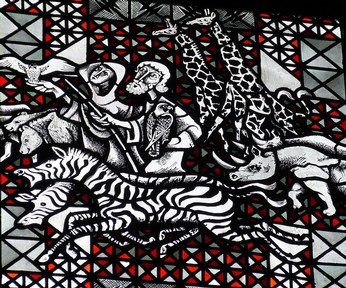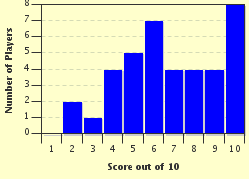Quiz Answer Key and Fun Facts
1. According to Genesis 32:13-15, to whom did Jacob give forty cows and ten bulls, as well as a number of other animals?
2. According to Genesis 41:1-3, who had two dreams, one involving seven fat cows and a second one involving seven emaciated cows?
3. Who made a gold calf for the Israelites to worship while Moses was meeting with God on Mount Sinai?
4. Who took her young son and gave him to Eli, along with three bulls, some flour and a skin of wine?
5. According to 1 Kings 8:63, who offered a sacrifice of peace offerings to the LORD, consisting of twenty-two thousand bulls as well as one hundred and twenty thousand sheep?
6. According to 1 Samuel 6, two milk cows were used to transport the ark of the LORD by the Philistines when they returned it to the Israelites.
7. What prophet of God was told by the LORD, "See, I am giving you cow dung instead of human waste and you shall prepare your bread over it"?
8. "Better is a dinner of herbs where love is than a fatted calf with hatred," is a verse found in an Old Testament book. What is the name of the book?
9. Who prepared a fatted calf to welcome home his wayward son, as per Luke 15:23?
10. The following verse is from a New Testament book in the NKJV: "For it is not possible that the blood of bulls and goats could take away sins." In what book do you read such a statement?
Source: Author
Cowrofl
This quiz was reviewed by FunTrivia editor
looney_tunes before going online.
Any errors found in FunTrivia content are routinely corrected through our feedback system.

